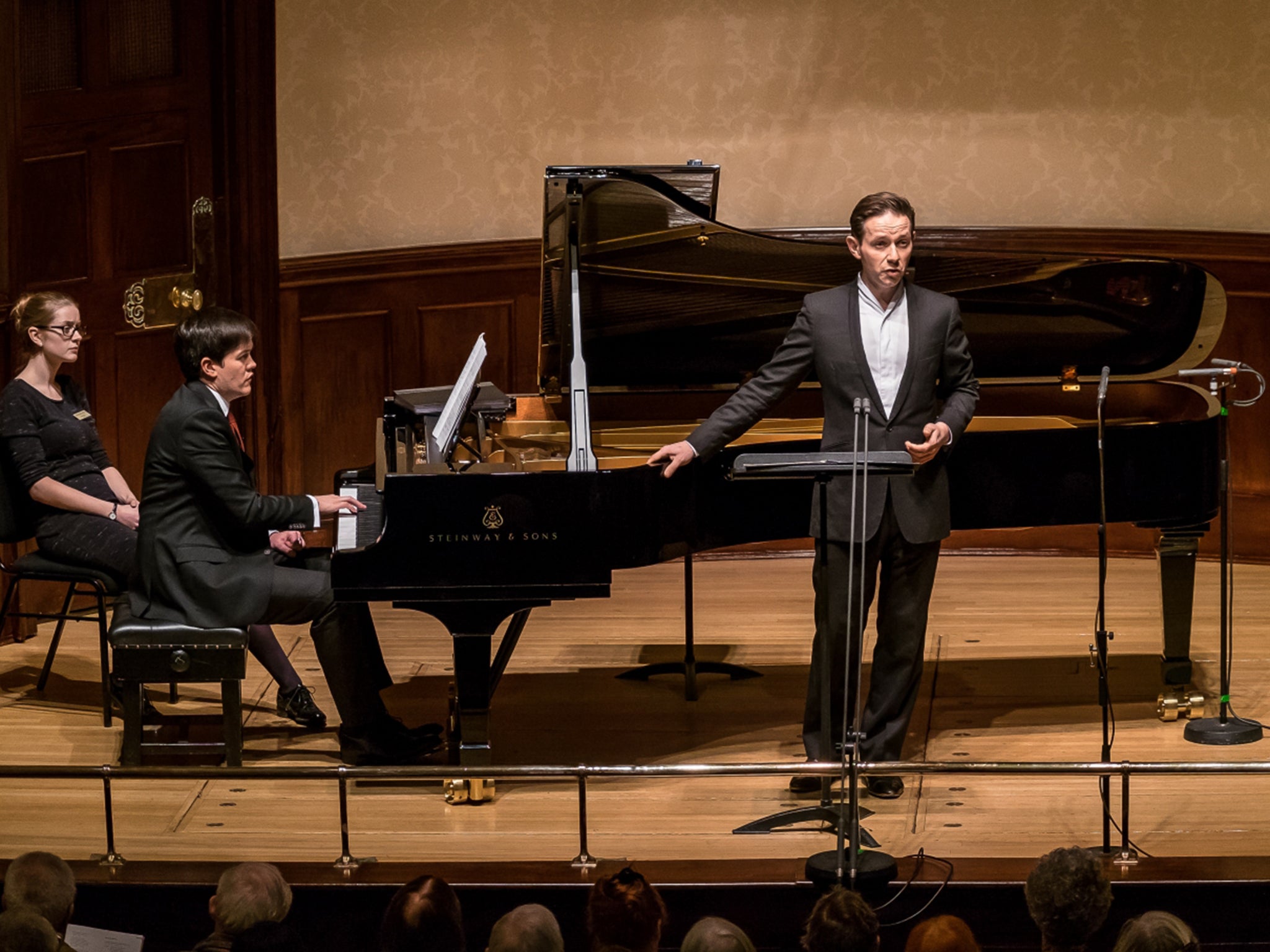Davies/Clayton/Baillieu, Wigmore Hall, review: Wonderful singers and excellent accompanist produce white-hot drama
With Iestyn Davies, supreme among countertenors, and fine tenor Allan Clayton, it was always going to be a major event

Your support helps us to tell the story
From reproductive rights to climate change to Big Tech, The Independent is on the ground when the story is developing. Whether it's investigating the financials of Elon Musk's pro-Trump PAC or producing our latest documentary, 'The A Word', which shines a light on the American women fighting for reproductive rights, we know how important it is to parse out the facts from the messaging.
At such a critical moment in US history, we need reporters on the ground. Your donation allows us to keep sending journalists to speak to both sides of the story.
The Independent is trusted by Americans across the entire political spectrum. And unlike many other quality news outlets, we choose not to lock Americans out of our reporting and analysis with paywalls. We believe quality journalism should be available to everyone, paid for by those who can afford it.
Your support makes all the difference.There was never any doubt that this recital was going to be a major event: while Iestyn Davies reigns supreme among countertenors, his friend Allan Clayton is in the front rank among tenors. The ‘news’ element was going to be the UK premiere of Nico Muhly’s ‘Lorne ys my liking’, but what proved much more interesting was the chance we were given to compare different composers’ styles of piano arrangement, with those of Tippett, Britten, Barber, Ades – and Muhly – laid helpfully side by side.
While Tippett’s arrangement of Purcell’s ‘Music for a while’ was respectfully supportive, Britten’s of his ‘Sweeter than roses’ was inventive, and Ades’s of the same composer’s ‘Full fathom five’ massively bold; Barber’s approach to three James Joyce poems was to embellish and amplify them. But if Muhly’s 2011 arrangements of four traditional songs were delicately suggestive, his new work was painfully self-regarding.
What emerged most strongly was Britten’s mastery of this demanding art: time and again one marvelled at the way his arrangements serve, celebrate, and intensify the poetry, and never more powerfully than in his great ‘Canticle II: Abraham and Isaac’, which these wonderful singers and their excellent accompanist James Baillieu turned into white-hot drama.
Join our commenting forum
Join thought-provoking conversations, follow other Independent readers and see their replies
Comments